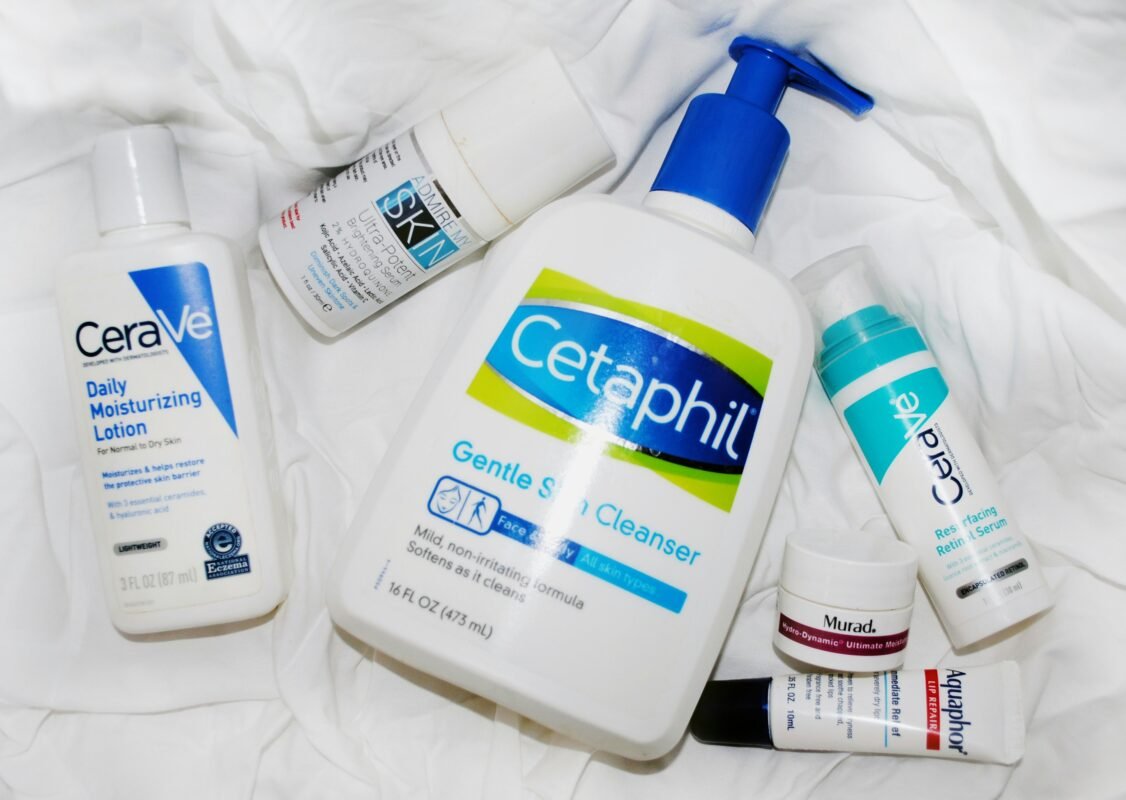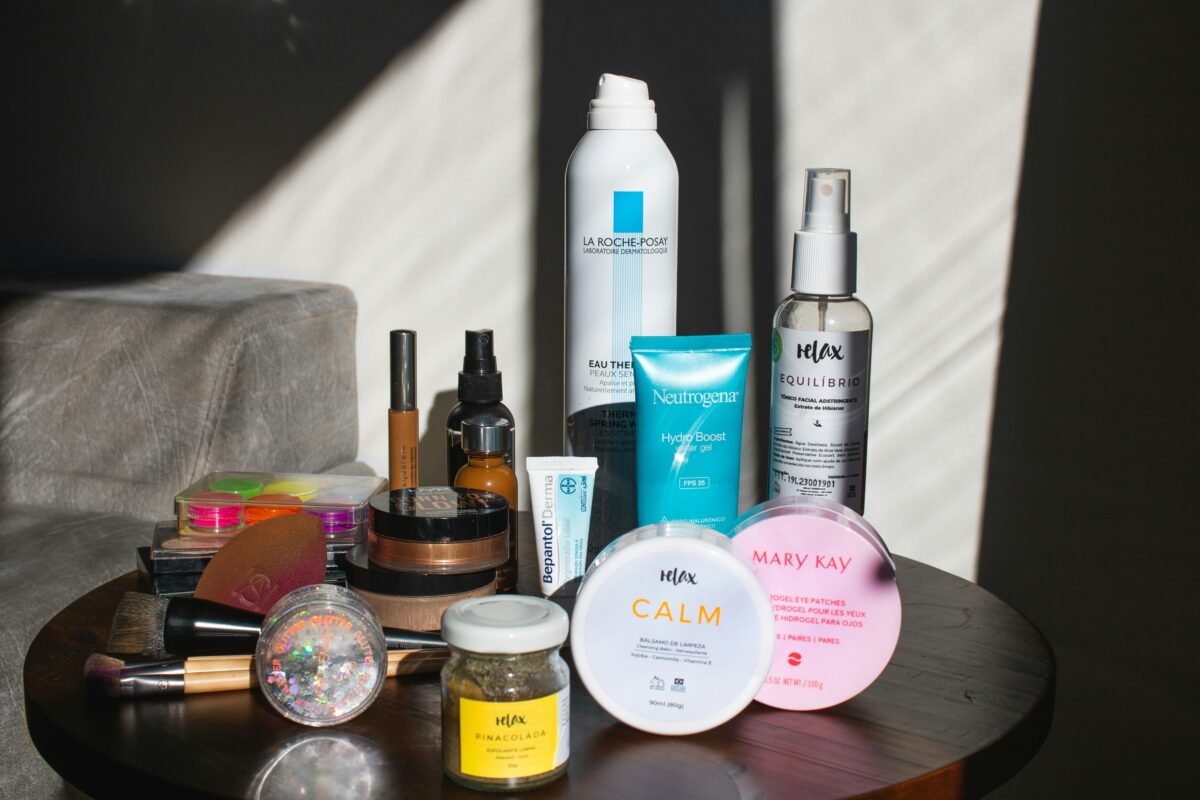The Best Skincare Ingredients for Sensitive Skin and How to Use Them
Sensitive skin requires special care and attention when it comes to skincare. Whether you experience redness, irritation, dryness, or breakouts, choosing the right products can make a significant difference in maintaining healthy skin. For those with sensitive skin, understanding the best skincare ingredients to use is key to calming and protecting your complexion without causing further irritation.
In this guide, we’ll explore the best skincare ingredients for sensitive skin and explain how to use them effectively to achieve smooth, radiant skin. From hydrating to soothing, these ingredients will help you restore balance and comfort to your skin.
1. Why Sensitive Skin Needs Special Care
Sensitive skin can be reactive to external factors such as changes in weather, pollution, stress, or the ingredients in skincare products. It may show signs like redness, itching, stinging, or burning after applying certain products. The skin’s natural barrier is often compromised, making it more vulnerable to irritation.
To care for sensitive skin, it’s crucial to focus on soothing, hydrating, and protective ingredients. Additionally, a gentle routine with minimal harsh chemicals can help maintain the skin’s balance and prevent flare-ups.
2. Key Skincare Ingredients for Sensitive Skin
1. Aloe Vera: A Soothing and Hydrating Hero
Aloe vera has been a go-to ingredient for calming skin irritations for centuries. It is naturally hydrating and soothing, which makes it perfect for sensitive skin that is prone to dryness, redness, or inflammation. Aloe vera contains anti-inflammatory compounds that help reduce swelling and irritation while moisturizing the skin.
How to Use Aloe Vera for Sensitive Skin:
-
Look for aloe vera gels or creams that contain a high percentage of pure aloe vera. Be cautious of products with added alcohol or fragrances, as these can irritate the skin.
-
Apply aloe vera gel directly to irritated or sunburned areas to soothe and hydrate.
-
You can also use aloe vera-based products as part of your daily skincare routine after cleansing to lock in moisture

2. Chamomile Extract: A Calming Ingredient for Irritated Skin
Chamomile has long been known for its calming effects, both when consumed as tea and applied topically to the skin. The antioxidant and anti-inflammatory properties of chamomile help to soothe irritated skin, reduce redness, and promote healing. It’s especially beneficial for those with conditions like eczema or rosacea.
How to Use Chamomile for Sensitive Skin:
-
Opt for chamomile-infused creams or serums that deliver gentle hydration and calming benefits.
-
Chamomile tea can also be used as a facial rinse. Simply brew some tea, let it cool, and gently pat it onto your face with a soft cotton pad.
3. Oatmeal: A Gentle Exfoliant and Moisturizer
Colloidal oatmeal (finely ground oatmeal) is often used in skincare products for sensitive skin. It’s a natural anti-inflammatory ingredient that helps to relieve dryness and irritation while also providing mild exfoliation. Oatmeal can improve the skin’s moisture barrier, leaving the skin feeling smooth and hydrated.
How to Use Oatmeal for Sensitive Skin:
-
Look for oatmeal-based cleansers or masks, which can help gently exfoliate without causing irritation.
-
For a DIY option, you can create an oatmeal bath by adding ground oatmeal to warm water and soaking in it for 15-20 minutes to soothe inflamed or irritated skin.
4. Hyaluronic Acid: Ultimate Hydration Without Irritation
Hyaluronic acid is a humectant that draws moisture into the skin, keeping it hydrated and plump. It’s gentle enough for sensitive skin, as it does not strip the skin’s natural oils or cause irritation. Hyaluronic acid helps maintain the skin’s moisture balance, which is vital for those with sensitive skin.
How to Use Hyaluronic Acid for Sensitive Skin:
-
Incorporate a hyaluronic acid serum into your morning and nighttime skincare routine.
-
Apply it on slightly damp skin to lock in moisture and prevent dryness.
5. Niacinamide (Vitamin B3): Strengthening and Calming the Skin Barrier
Niacinamide is a water-soluble form of Vitamin B3, and it’s one of the best ingredients for sensitive skin due to its soothing properties. It works by calming inflammation, reducing redness, and reinforcing the skin’s natural barrier. Niacinamide also helps with hyperpigmentation, making it ideal for those with sensitive skin who want to brighten their complexion.
How to Use Niacinamide for Sensitive Skin:
-
Look for serums, moisturizers, or toners with 2-5% niacinamide for gentle but effective results.
-
Apply it after cleansing and before moisturizing for the best effect.
6. Calendula Extract: A Natural Healer for Sensitive Skin
Calendula, or marigold, is a flower known for its antibacterial, anti-inflammatory, and antioxidant properties. Calendula extract is often used to help heal and calm the skin, especially in cases of dryness, irritation, and redness. It’s a gentle ingredient suitable for very sensitive skin or those dealing with rashes or minor cuts.
How to Use Calendula Extract for Sensitive Skin:
-
Use calendula-infused creams or ointments to calm skin irritation and promote healing.
-
Calendula oil can be applied directly to the skin or mixed with your moisturizer for additional soothing effects.
7. Cica (Centella Asiatica): Healing and Repairing the Skin
Cica, or Centella Asiatica, is an herb used extensively in K-beauty for its healing properties. It is rich in saponins that promote the production of collagen and help to repair and strengthen the skin barrier. It is also highly anti-inflammatory, making it perfect for reducing redness and calming irritation.
How to Use Cica for Sensitive Skin:
-
Choose Cica creams or masks formulated specifically for sensitive skin.
-
Apply cica-based products after cleansing to boost skin regeneration and reduce inflammation.
3. Tips for Using Skincare Ingredients on Sensitive Skin
1. Patch Test New Products
Before adding a new product with active ingredients into your routine, always perform a patch test to ensure that your skin will tolerate it. Apply a small amount of the product on the inside of your wrist or behind your ear and wait 24 hours to check for any signs of irritation or redness.
2. Stick to a Minimalist Routine
For sensitive skin, less is often more. Keep your skincare routine simple by using a gentle cleanser, moisturizer, sunscreen, and one or two active ingredients targeting your specific concerns. Avoid products that contain alcohol, artificial fragrances, or harsh chemicals, which can aggravate sensitive skin.
3. Use Fragrance-Free Products
Fragrances, whether synthetic or natural, can irritate sensitive skin. Look for fragrance-free or hypoallergenic skincare products to reduce the risk of allergic reactions.
4. Layer Products Gently
When applying skincare products, be gentle with your skin. Avoid rubbing or pulling at your skin, and instead, tap products in with your fingertips to prevent irritation.
4. Best Skincare Routine for Sensitive Skin
Here’s a simple yet effective skincare routine for sensitive skin using the ingredients mentioned above:
-
Cleanser: Use a gentle, fragrance-free cleanser to remove dirt and impurities without stripping the skin.
-
Toner (Optional): If you want to tone your skin, choose an alcohol-free toner with soothing ingredients like chamomile or rose water.
-
Serum: Use a hyaluronic acid serum or a niacinamide serum to hydrate and calm your skin.
-
Moisturizer: Apply a soothing, fragrance-free moisturizer with ingredients like aloe vera or Cica.
-
Sunscreen: Never skip sunscreen. Use a mineral sunscreen with broad-spectrum protection to shield your skin from UV damage.
5. Additional Lifestyle Tips for Sensitive Skin
1. Protect Your Skin from Harsh Weather
Sensitive skin is more susceptible to environmental factors such as wind, cold, or sun. Protect your skin with scarves, hats, or sunscreen to avoid irritation from extreme weather.
2. Avoid Hot Water
Hot water can strip the skin’s natural oils and cause irritation. Use lukewarm water when cleansing your face and avoid hot showers.
3. Stay Hydrated
Drinking plenty of water helps keep your skin hydrated and supports its barrier function. Adequate hydration can reduce dryness and irritation.
4. Manage Stress
Stress can trigger flare-ups of sensitive skin conditions like eczema or rosacea. Practice stress management techniques like meditation, yoga, or deep breathing to keep your skin calm.
7. Common Mistakes to Avoid When Caring for Sensitive Skin
Caring for sensitive skin may seem simple, but there are common mistakes that people with sensitive skin often make that can lead to flare-ups and irritation. Avoiding these mistakes is crucial in maintaining a healthy complexion. Here are some pitfalls to watch out for:
1. Over-Exfoliating
Exfoliation is beneficial for removing dead skin cells, but overdoing it can strip the skin of its natural barrier, making it more prone to irritation. For sensitive skin, it’s essential to choose a gentle exfoliant and limit exfoliation to once or twice a week.
Tip: Opt for chemical exfoliants like lactic acid or mandelic acid, which are milder than physical scrubs and less likely to irritate the skin.
2. Using Harsh Products with Alcohol or Fragrance
Many products designed for sensitive skin are marketed as “gentle,” but some still contain harsh ingredients like alcohol, synthetic fragrances, or dyes. These ingredients can cause further irritation, dryness, or even allergic reactions in sensitive skin.
Tip: Always choose products that are fragrance-free and free from drying alcohol. Look for formulas labeled as hypoallergenic or dermatologist-tested to ensure they are safe for sensitive skin.
3. Ignoring the Importance of Sunscreen
Sun exposure is one of the most significant triggers for sensitive skin flare-ups. Whether you have redness-prone skin or conditions like rosacea, the sun can aggravate your symptoms and lead to premature aging. Skipping sunscreen can make sensitive skin even more vulnerable.
Tip: Apply a broad-spectrum sunscreen with SPF 30 or higher every morning, even on cloudy days. Choose a mineral sunscreen that contains zinc oxide or titanium dioxide, which are less likely to cause irritation compared to chemical sunscreens.
4. Switching Products Too Often
While it’s tempting to try new skincare products, frequently changing products can stress out your skin and cause reactions. Sensitive skin thrives on consistency, so it’s best to stick with products that are gentle and well-tolerated over time.
Tip: Introduce one new product at a time into your routine and give it a few weeks to see how your skin responds. This will help you identify any potential irritants without overwhelming your skin.
8. Ingredients to Avoid for Sensitive Skin
While many ingredients work wonders for sensitive skin, certain substances can cause irritation or worsen existing conditions. Therefore, it’s important to avoid the following ingredients:
1. Alcohol Denat. (Denatured Alcohol)
Denatured alcohol is often included in products as a solvent or preservative. However, it can be extremely drying and irritating for sensitive skin. In fact, it strips the skin of its natural oils, which weakens the skin’s barrier and leads to increased dryness and discomfort. As a result, sensitive skin may become more vulnerable to environmental factors.
2. Synthetic Fragrances
Fragrance is one of the most common irritants in skincare products, especially for individuals with sensitive skin. Even though natural fragrances, such as essential oils, are considered safer, they can still trigger reactions in some people. For this reason, it’s advisable to choose products that are fragrance-free to avoid unnecessary irritation.
3. Harsh Exfoliants
Although exfoliation is essential for maintaining smooth, healthy skin, physical exfoliants with large, rough particles can damage sensitive skin. Instead, opt for gentle chemical exfoliants like lactic acid or glycolic acid, which provide effective exfoliation without causing irritation. This way, you can maintain a smooth complexion without compromising the skin’s health.
9. Best Skincare Routine for Sensitive Skin
Building a skincare routine for sensitive skin requires careful selection of products and a focus on gentle care. First and foremost, always start with a mild, fragrance-free cleanser to avoid stripping the skin. Afterward, you can use a soothing toner infused with ingredients like chamomile or aloe vera, which further calm and hydrate the skin.
In addition, applying a serum with hyaluronic acid or niacinamide can lock in moisture and strengthen the skin’s barrier. Finally, finish with a protective moisturizer to seal in all the hydration. Importantly, never skip sunscreen, as UV exposure can aggravate sensitive skin and lead to premature aging.
10. Additional Lifestyle Tips for Sensitive Skin
To support your skincare routine, adopting a few lifestyle changes can make a significant difference in managing sensitive skin. For example, staying hydrated is crucial for maintaining skin’s moisture levels. Drinking plenty of water ensures that your skin remains supple and hydrated throughout the day.
Moreover, managing stress is essential. Since stress can trigger flare-ups, practicing relaxation techniques, such as meditation or yoga, can help keep your skin calm and balanced. Similarly, limiting sun exposure, especially during peak hours, will protect your skin from harsh UV rays that can trigger irritation.
Conclusion
Skin care for sensitive people does not have to be difficult. When you are aware of the best skincare ingredients and the best ways to utilize them, you’ll be able to reduce irritation and keep your skin moisturized smooth, calm, and glowing. Incorporating soothing ingredients such as aloe vera, chamomile and Niacinamide in your routine for skincare as well as avoiding common irritants such as synthetic fragrances and alcohol is vital to maintain the health of your skin.
Keep in mind that consistency is the key so always test the new products prior to fully incorporating the products to your regimen. If you adhere to a gentle and steady routine and paying attention to your skin’s requirements it will be possible to enjoy a healthy, radiant complexion that’s free from irritation.












